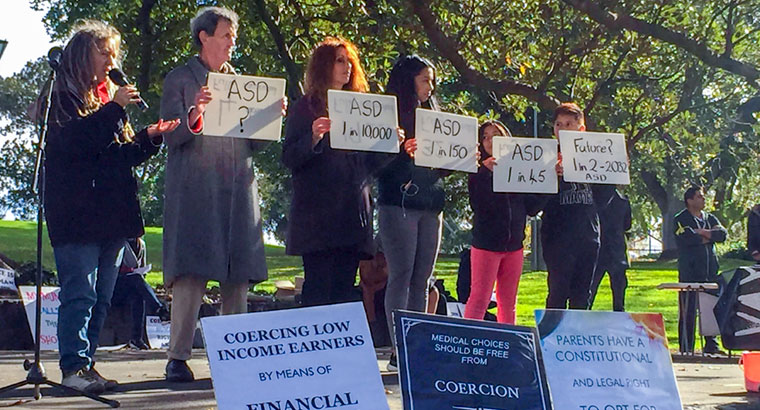News
Vaccine hesitancy a top threat to global health: WHO
The WHO has declared reluctance to vaccinate a major threat to public health, as a number of diseases that were close to elimination see a resurgence.
 One of the key issues behind vaccine hesitancy is lack of confidence in effects versus perceived harms. (Image: Stefan Postles)
One of the key issues behind vaccine hesitancy is lack of confidence in effects versus perceived harms. (Image: Stefan Postles)
The World Health Organization (WHO) has released its 10 threats to global health in 2019 and it contains some intriguing – and frightening – new entrants since last year’s list, including antimicrobial resistance, HIV, Ebola and vaccine hesitancy.
Vaccination is one of the most cost-effective public health measures currently available, preventing 2–3 million deaths every year from diseases such as diphtheria, pertussis and measles. The WHO has estimated the prevention of an additional 1.5 million deaths with further improvement of global vaccine coverage.
However, vaccine scepticism has grown in developed countries, including Australia, which have been close to eliminating many diseases due to the availability of vaccines. Several of these diseases have experienced a resurgence in recent years.
For example, measles cases have risen by 30% across the globe since 2016, with more than 41,000 cases reported across the European Union in the first six months of 2018 – almost double the number over the whole of 2017.
Australia has not been immune from these incidents, with a number of measles cases confirmed in recent weeks.
Sydney has eight confirmed cases since Christmas, the most recent of which involved two unvaccinated children from Northern Sydney who were diagnosed with measles after returning from a trip to Sri Lanka.
Melbourne has also confirmed several cases in recent weeks, including a man in his 20s who visited a popular restaurant and other locations while infectious, as well as another man who may have been infectious while visiting the Box Hill Hospital.

An anti-vaccination rally in Melbourne. (Image: Kaitlyn Offer)
The WHO has identified a range of reasons behind vaccine hesitancy, with key issues including inconvenience in accessing vaccines, a lack of confidence in their effects versus perceived harms, and, perhaps ironically, complacency caused by the very success of vaccination programs. It also recognises the vital importance of healthcare workers in communities in providing trusted advice and influence over people’s vaccination decisions.
Immediate Past RACGP President Dr Bastian Seidel has previously emphasised that GPs, as the first point of healthcare contact in most Australian communities, have a vital role in helping patients to make decisions on this issue.
‘It is understandable that some parents may feel worried or confused about vaccinations – they just want to do the best for their children,’ he wrote for newsGP last year.
‘But as providers of their day-to-day care and administrators of vaccination programs, GPs are extremely well-placed to give parents reliable and evidence-based information.
‘We encourage parents to come to us with any questions and concerns and will offer advice tailored to each child’s specific vaccination needs.’
hesitancy immunisation vaccination vaccine WHO
newsGP weekly poll
Within general practice, do you think there are barriers to providing flu vaccinations? If so, what are they?